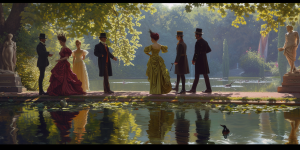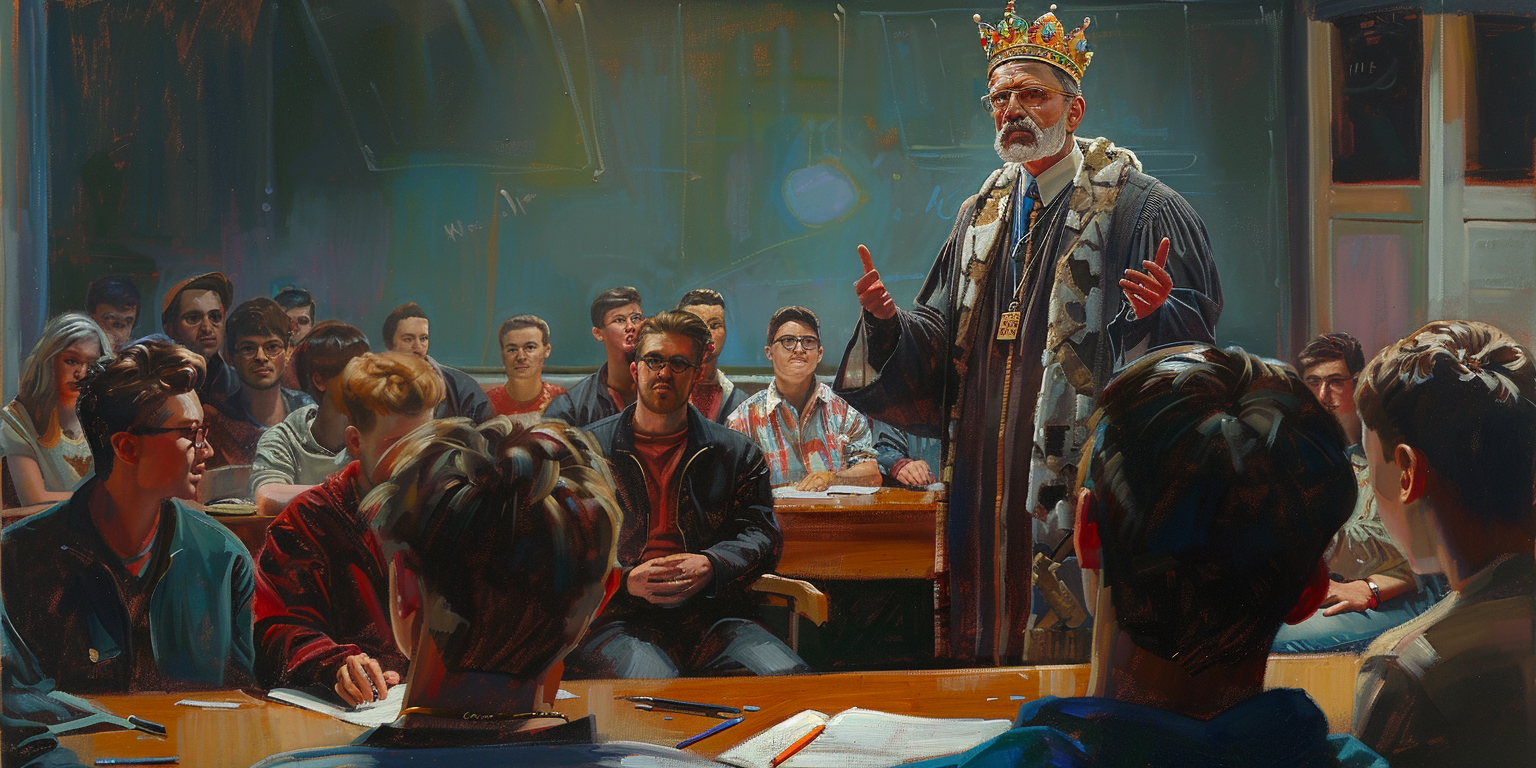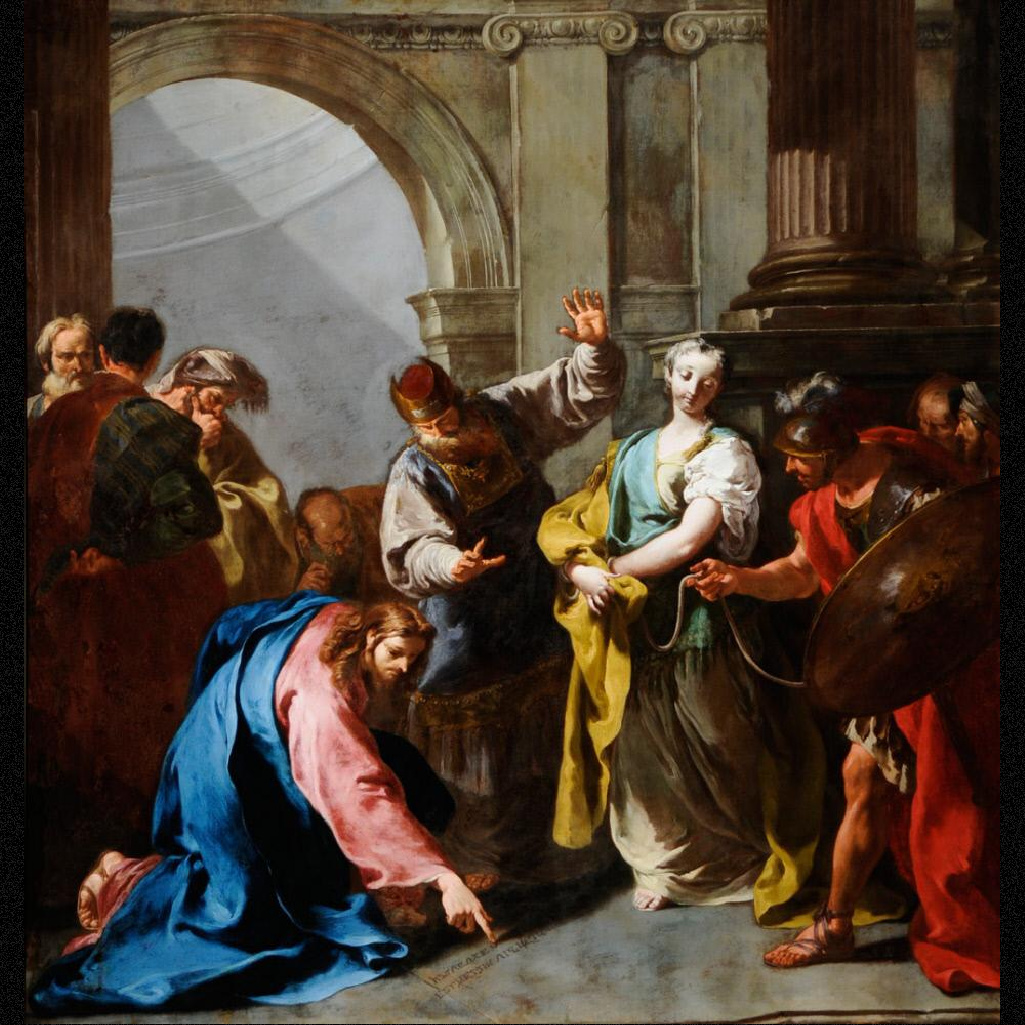Making Your Self God—Two Books by Tara Isabella Burton
We find ourselves living in a place and time where all sorts of institutions are failing due to lack of interest and conflicts of interest. Church institutions are no exception. Institutional religion is being abandoned at a quick pace as people “remix” their beliefs and practices to suit their intuitional feelings and aspirations.
In two books, Tara Isabella Burton explains how we got here and how we are becoming gods unto ourselves. Self-Made: Creating Our Identities from Da Vinci to the Kardashians begins farther back than one might expect, in an age where the royal rich could do anything they wanted and everyone else couldn’t. It was a social order set in stone, so when the Renaissance dawned in Europe, and people like Leonardo Da Vinci (who were not royal or rich, but genius) appeared, people needed an explanation. Along with the Renaissance came the origins of “self-help.”
Along with the Renaissance came the origins of “self-help”—how to become like these cultivated men. In a sense, they became just like the “influencers” of today. People studied how to transcend their own commonness and adopt certain qualities to be like them. Thus, they got a hold of books, like “… Baldassare Castiglione’s 1528 publication, The Courtier, which was a guide for those who wished to serve in aristocratic courts like Castiglione’s own duchy of Urbino.” A man could imagine no longer being stuck in a hierarchical social system but getting the system fitted to him.
Following the Renaissance, the Enlightenment expanded in this new direction. The old order was fracturing; the class system gradually seemed possible to transcend, according to a man’s originality, wit, and self-promotion. “The idea that our personal desires are the truest, deepest parts of ourselves and should dictate our lives and our fates is a direct successor to the Enlightenment’s disenchantment of custom.”
Coincidentally, this process not only involved making social classes more fluid but also hacking away at the hierarchy of the Catholic Church. The Reformation, with scripture printed in the vernacular, enabled people to read scripture on their own and derive their own inspiration. (The Enlightenment and Reformation were absolutely necessary for the Restoration, where a new religion started with a book and the encouragement to read it and pray to receive one’s own witness of its truth. This same process, however, eventually resulted in about 45,000 unique Protestant denominations.)
Early secular self-makers used transgression with purpose—they were trying to portray themselves as “superior to, and distinct from, the rules and customs of society.” Moral, aesthetic, or sexual transgressions against solid norms set the self-made apart. An important manifestation of this was dandyism, which flourished in the late 1700s, with Beau Brummell’s name going down through history. One needed a flair for fashion and an entertaining wit. People who made it into “Le bon-ton” could reach the top of the social ladder, and other people felt like this could be learned.

America—The Land of the Self-Made
All of this translated very well from Europe to America. After all, America is the original land of the self-made, with its original European settlers arriving to do just that. Religion in America tended in two directions—toward hellfire and brimstone on the one hand and the Unitarian vision of doing away with the uncomfortable negatives on the other. New, progressive ideas about the human spirit evolved. Henry Adams felt, during the Gilded Age of the late 1800s, that religion was disappearing. The popularity of science and materialism grew. (While Brigham Young was trying to build the kingdom in Utah, the American book market was deluged with how-to books that associated prosperity with self-improvement.) Get-rich schemes abounded. They replace “institutionalism” with “intuitionalism.”
Trendsetters still came from America’s wealthiest citizens, but Hollywood and capitalism enhanced the image of the “American Dream.” Even through the Great Depression, the dream held. Post-WWII, American society (especially for white people) was all up economically into the 60s. This post-war period was basically a family-oriented, firmly Protestant culture, with extended family members relatively nearby, old-fashioned moral principles upheld by the society at large, general respect for authority, respect for institutions, and a lot of opportunities to join social groups for support and friendship as well as contributing to society.
The second half of the 1960s exposed cracks in America’s social cohesiveness. Baby boomers coming of age rebelled against war (in Vietnam especially), materialism, and traditional sexual mores. That rebellion continued to burgeon through the following decades. Individualism entrenched itself and amplified along the way, especially as traditional morality faded.
The invention of the internet exploded Pandora’s box. “In this new technological landscape … custom, place, parents would soon become irrelevant.” The person who seeks to self-create searches online to find compatible self-creators. Teens and adults aspire to be “influencers” in their groups. Because everyone is “self-making,” and respect for self-making has become the end-all, be-all moral high ground, other types of morality have slipped away. These ideas and current realities are fully drawn out in Burton’s book about self-worship.
The Self as God
Strange Rites: New Religions for a Godless World investigates the current landscape of America, the land of the self-made. America is trending toward “a religion of emotive intuition, of aestheticized and commodified experience, of self-creation, and self-improvement … decoupled from institutions, from creeds, from metaphysical truth-claims about God or the universe, or the Way Things Are, but that still seeks—in various and varying ways—to provide us with the pillars of what religion always has: meaning, purpose, community, ritual.”
Burton counsels us to avoid calling sections of the non-religion-following American public “Nones.” Instead, she labels them the “Remixed.” They pick and choose from all sorts of religious ideas and social identifiers according to what most resonates with their desires and fancies. They replace “institutionalism” with “intuitionalism.” The “Remixed reject authority, institution, creed, and moral universalism. They value intuition, personal feelings, and experiences. They demand to rewrite their own scripts about how the universe and human beings operate.” Many of the philosophies and practices of the remixed seem anti-religion, yet they somehow yield religious experiences for these Americans. They now constitute the largest religious demographic in the U.S.
Burton identifies some major groups and ideas that are replacing religion:
- The social justice movement (including Critical Race Theory, feminism, and Marxist philosophies)
- Far-right nationalism (including Incels, the exalting of “toxic masculinity”). This movement is nihilistic and apocalyptic in some ways.
- Wellness culture
- LGBTQIA
- Modern occultism (including paganism, witchcraft, Wicca)
- Techno-utopianism of Silicon Valley (expecting the singularity when human beings and technology merge)
- The Prosperity gospel
- Fandom (sports, fantasy fiction and movies, celebrities, gaming)
- Kink
Kink! Really? Yes. Kink introduces such wild sexual practices that one must learn to surrender completely to participate fully. Practitioners say this surrender is transcendentally spiritual. Note that all of these remixed lifestyles are sexually amoral. In Silicon Valley, polyamory is all the rage. Polls say that most younger people in the US are open to that lifestyle. In modern America, sex is transactional, and sexuality is whatever you say it is. In other words, just like everything else, we now have an intuitive approach to sex and sexuality. Sadly, a disregard for sexual mores yields fewer cohesive families, more confusion, a declining population, and more disease.
Meanwhile, self-makers valorize and sacralize their unique experiences. Yet, in these new religions, we never acquire perfection and blame ourselves for our failures. Anxiety and depression continue to affect more and more people even as they focus more on themselves. The prophets knew this was coming.
The Remixed use call-out culture to provide the intimation of high moral ground. While people become more true to themselves, controversy and conflict rise to a fever pitch. “… a religion of the self … risks creating an increasingly balkanized American culture: one in which our desire for personal authenticity and experiential fulfillment takes precedence over our willingness to build coherent ideological systems and functional, sustainable institutions.”
We Have Been Warned
I found Burton’s book “Self-Made” enlightening and “Strange Rites” frightening. The prophets knew this was coming. Several scriptures warn us of these things.
“… Notwithstanding they believed in a Great Spirit, they supposed that whatsoever they did was right …” (Alma 18:5).
“This know also, that in the last days, perilous times shall come. For men shall be lovers of their own selves, covetous, boasters, proud, blasphemers, disobedient to parents, unthankful, unholy, without natural affection, trucebreakers, false accusers, incontinent, fierce, despisers of those that are good, traitors, heady, highminded, lovers of pleasures more than lovers of God; having a form of godliness, but denying the power thereof … ever learning, and never able to come to the knowledge of the truth” (2 Timothy 2:1 – 5, 7).
“… go no more after the lusts of your eyes, but cross yourself in all these things; for except ye do this ye can in nowise inherit the kingdom of God” (Alma 39:9:).
“They seek not the Lord to establish his righteousness, but every man walketh in his own way, and after the image of his own god, whose image is in the likeness of the world, and whose substance is that of an idol, which waxeth old and shall perish in Babylon, even Babylon the great, which shall fall” (D&C 1:16).
And finally, a quote from Dennis F. Kinlaw:
“Satan disguises submission to himself under the ruse of personal autonomy. He never asks us to become his servants. … The shift in commitment is never Christ to evil; it is always from Christ to self. And instead of His will, self-interest now rules, and what I want reigns. And that is the essence of sin.”

















